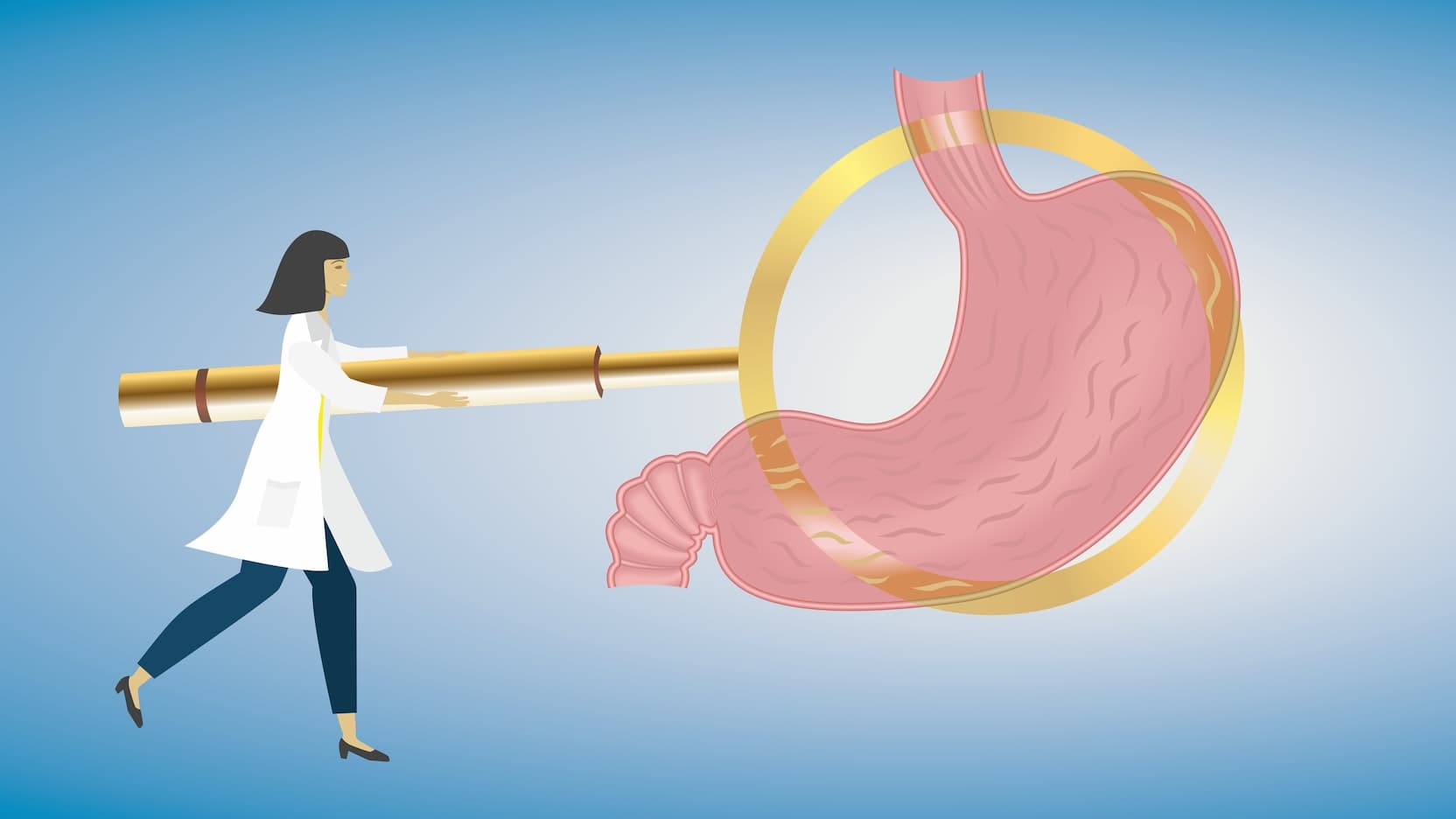Navigating weight loss: When to consider bariatric surgery after GLP-1 therapy

People who have used GLP-1 medications — better known by their brand names like Ozempic, Mounjaro or Wegovy — have likely seen meaningful changes in their health, such as improved blood sugar, lower blood pressure and weight loss.
But the results typically fade after a person stops taking it.
Some patients may seek a more permanent solution with bariatric surgery.
“I see patients on GLP-1s who are either maxed out on the recommended dosage, or they’ve plateaued in terms of weight loss,” said University of Chicago Medicine bariatric surgeon Vanessa Buie, MD, MBA. “There’s really good data supporting the use of GLP-1s alongside or in preparation for surgery.”
Recently, UChicago Medicine Ingalls Memorial Hospital began offering bariatric surgery — providing a convenient option beyond UChicago Medicine’s Center for Care and Discovery in Hyde Park.
Buie, who sees patients at both locations, spoke more about transitioning from GLP-1s to bariatric surgery.
How does bariatric surgery compare to long-term use of GLP-1 medication?
For sustained weight loss, bariatric surgeries offer greater durability and maintenance, Buie said.
“Although there’s always a little weight regained after surgery — around 5% — we see patients 10 or 15 years down the road who are maintaining their weight loss,” Buie said.
On the other hand, when patients discontinue GLP-1s, their weight regain is typically incremental to how quickly and how much they lost while taking the medicine, Buie said.
It can also be more cost-effective. Over two years, bariatric surgery saves nearly $12,000 compared to GLP-1 therapy, according to a 2025 study in JAMA Surgery.
Which type of bariatric surgery is best for me?
At UChicago Medicine, the bariatric surgery journey is personalized.
Doctors consider a patient’s comorbidities (coexisting, often chronic health conditions), as well as their goals, lifestyle habits and risk factors when deciding which option to choose.
The most common bariatric surgery procedures are:
- Sleeve gastrectomy: Roughly 80% of the stomach is removed, leaving a sleeve-shaped portion that can hold less food and is resistant to stretching. This significantly decreases appetite hormones.
- Roux-en-Y gastric bypass: Intestines are rerouted to create a stomach the size of a golf ball. It's a particularly beneficial option for patients with type 2 diabetes and gastroesophageal reflux disease (including reflux and heartburn).
- Duodenal switch: The most effective weight loss procedure for most patients, it combines a gastric sleeve with an intestinal bypass. This approach is for people with a BMI above 50, severe diabetes or who'd like to lose 200 pounds or more.
To be approved for bariatric surgery, patients must commit to lifestyle and behavior changes required after surgery and meet with a team of bariatric providers, including dieticians and a mental health provider.
Some insurance plans may require supervised weight loss or that patients not gain additional weight prior to surgery.
How and when should I stop my GLP-1 before bariatric surgery?
Patients must stop taking GLP-1s two weeks before bariatric surgery, Buie said.
That’s because GLP-1s are designed to slow gastric emptying, the process of the stomach’s contents being released into the small intestine to aid digestion. This slowdown means food sits in the stomach longer, increasing the chance of aspirating or breathing complications while asleep for surgery.
To ensure the safest possible surgery, Buie also asks her patients to follow a very low-calorie, high-protein diet during the two weeks leading up to surgery. This is because the liver partly overlies the stomach and obesity can cause it to become enlarged.
A “liver-shrinking diet” can reduce a liver’s size by up to 25% and improve surgical access to the stomach, Buie said.
What results can I expect after bariatric surgery?
Depending on the procedure they choose, patients can expect to lose roughly 25% to 35% of their total body weight. During the first year, between 60% to 80% of patients with type 2 diabetes experience major improvement or remission.
Patients should take at least two weeks off after surgery to adjust to a smaller stomach and new lifestyle.
“With a gastric bypass, your new stomach is about the size of two shot glasses,” Buie said. “Meal sizes are about a one-quarter to one-half cup in size, and they may take 30 to 45 minutes to eat.”
UChicago Medicine dietitians, psychologists, social workers and support groups ensure patients receive frequent follow-up and support during what can be a difficult adjustment after surgery.
Patients have follow-up visits at two weeks, six weeks, four months, 10 months and then annually to ensure they stay on track.
Can GLP-1s be restarted after bariatric surgery if needed?
In the first year or two after bariatric surgery, patients typically lose weight through consistent diet, exercise and behavior changes, said Buie, who also sees patients at UChicago Medicine locations in Orland Park and Tinley Park.
Patients must also manage any nausea or vomiting and meet their nutrition goals, including taking daily vitamin and nutrient supplements and eating enough protein. (These tasks can be complicated by GLP-1 medications, which commonly cause nausea, vomiting and reduced appetite.)
Restarting GLP-1 medications may be an option, Buie said, for the following reasons:
- Weight loss eventually plateaus or stalls after bariatric surgery
- Additional bariatric surgery isn't possible (such as converting a sleeve gastrectomy to a duodenal switch)
- Weight regain has occurred years after having bariatric surgery.
Chicago Weight: A Weight Management Program for Adults
UChicago Medicine's Weight Management Program is designed to help patients manage excess weight, as well as any associated medical conditions. Our team works with each patient to create an individualized care plan. We offer a full spectrum of services and, depending on your needs, may recommend nutritional and physical activity counseling, psychological and lifestyle counseling, medications, endoscopic bariatric procedures and/or surgery.
Learn more about our weight loss program
Vanessa Buie, MD, MBA
Vanessa Buie, MD, MBA, is an expert minimally invasive gastrointestinal and bariatric surgeon who specializes in primary and revisional weight loss surgery, and is highly skilled in all surgical techniques for hernia repair.
See Dr. Buie's bio